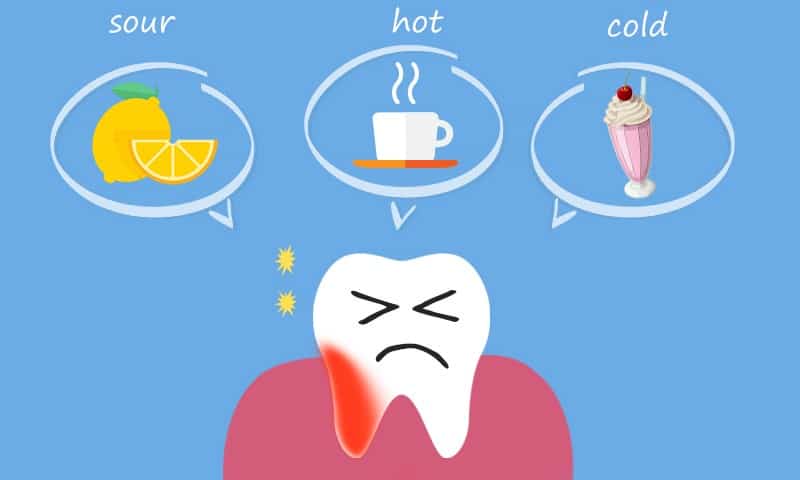Are cold drinks or ice cream hurting your teeth? If you’re suffering from teeth sensitivity, look no further! One of our followers, Dr. Samman Hassan is here to help us all. Scroll down to read her article on the causes for teeth sensitivity and what you can do to tackle it:

Causes:
- Gum recession: Receding gums with age cause exposure of tooth roots. As roots have a thinner layer of enamel, they are more sensitive than the crown of your tooth. Receding gums might also be a sign of an ongoing gum disease called gingivitis. Consult your dentist in this case.
- Poor oral hygiene: Poor oral hygiene leads to plaque build-up, ultimately leading to loss of enamel.
- Occult caries: When caries get to the innermost layer of your tooth, known as pulp, it can cause mild to sharp pain when eating or drinking something sweet, hot or cold.
- Long-term use of mouthwash: Some over-the- counter mouthwashes contain alcohol and other chemicals that can worsen tooth sensitivity.
- Tooth whitening: Sensitivity is experienced after most teeth whitening procedures. The good news though is that it is only temporary.
- Cracked tooth: A crack in your tooth might be extending all the way to the end of your root, leading to sensitivity to cold.
- Aggressive brushing and highly acidic diet: Use of hard bristled-bristled toothbrush and practicing aggressive brushing can cause enamel wear off. Similarly sticky, high acidic and sugary foods and drinks like soda and sweets lead to caries and enamel loss.
- Teeth grinding: Clenching or grinding teeth in sleep or while awake is a problem for your teeth as well as your muscles.

Treatment
Once you have identified the real cause, you can actually deal with your sensitivity and even cure it!
- Desensitising toothpaste: Talk to your dentist for a medicated toothpaste.
- Use of soft-bristled toothbrush: Gently clean your teeth twice daily using a soft-bristled toothbrush at a 45 degree angle to your gums. This is called Modified Brass technique.
- Fluoride gel application: In case of carious prone teeth, your dentist might suggest you to apply fluoride gel.
- Use of fluoridated mouthwash: Use an alcohol-free mouthwash with slight fluoride content after consulting with your dentist.
- Avoid high acidic foods: Eat more fresh, nutrient-dense vegetables and fruits as well as milk, cheese and yogurt. Avoid soda, sweets and other acidic foods.
- Avoid teeth grinding or use a mouthguard: De-stress yourself! Ask your dentist for a muscle relaxant or a mouth guard.
- Fillings: In case of small cracks or caries that have not reached, pulp can be filled to help with the sensitivity.
- Sealants: Application of a sealant or a varnish can help reduce pain and discomfort by strengthening your tooth structure.
- Root canals: In case of deep caries you will have to get your root canal treatment done. In severe cases where other methods fail, your dentist might recommend root canal.
Don’t be anxious to go to a dentist. Ignoring dental health can worsen the problem. Don’t forget to brush and floss your teeth twice daily for a healthy and beautiful smile. Avoid smoking. Visit your dentist twice yearly. And good luck! Hopefully you can now say goodbye to your sensitive teeth.









What do you think?
You must be logged in to post a comment.